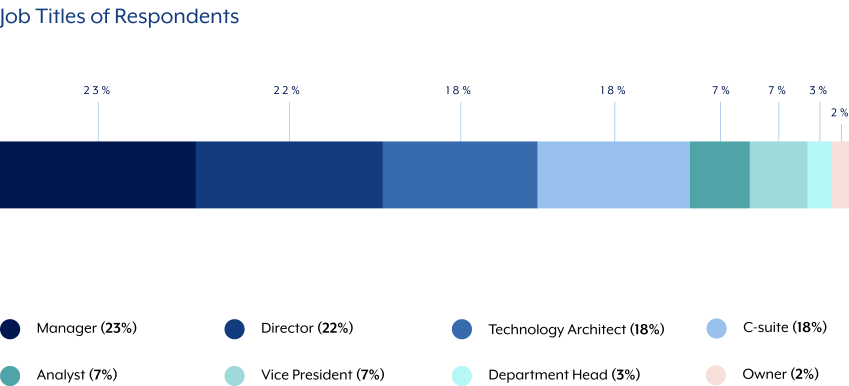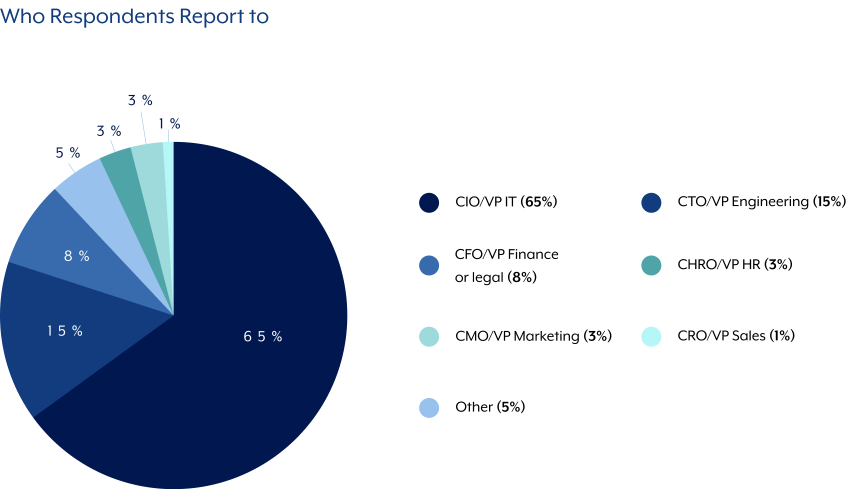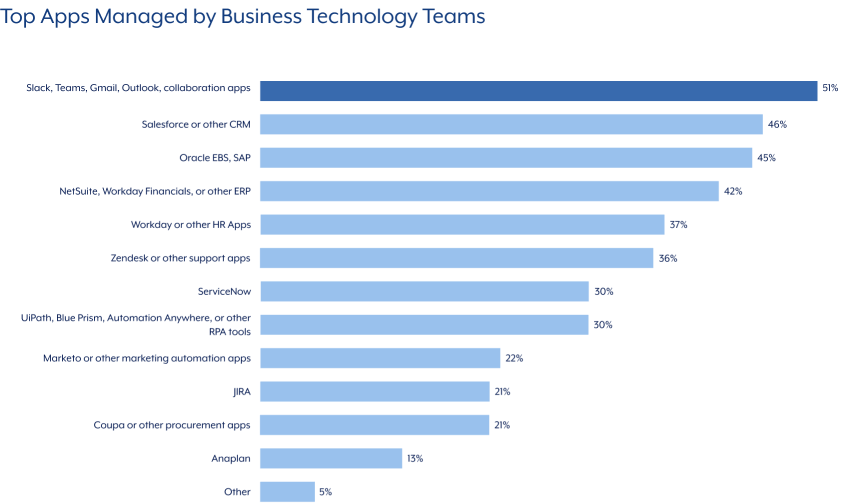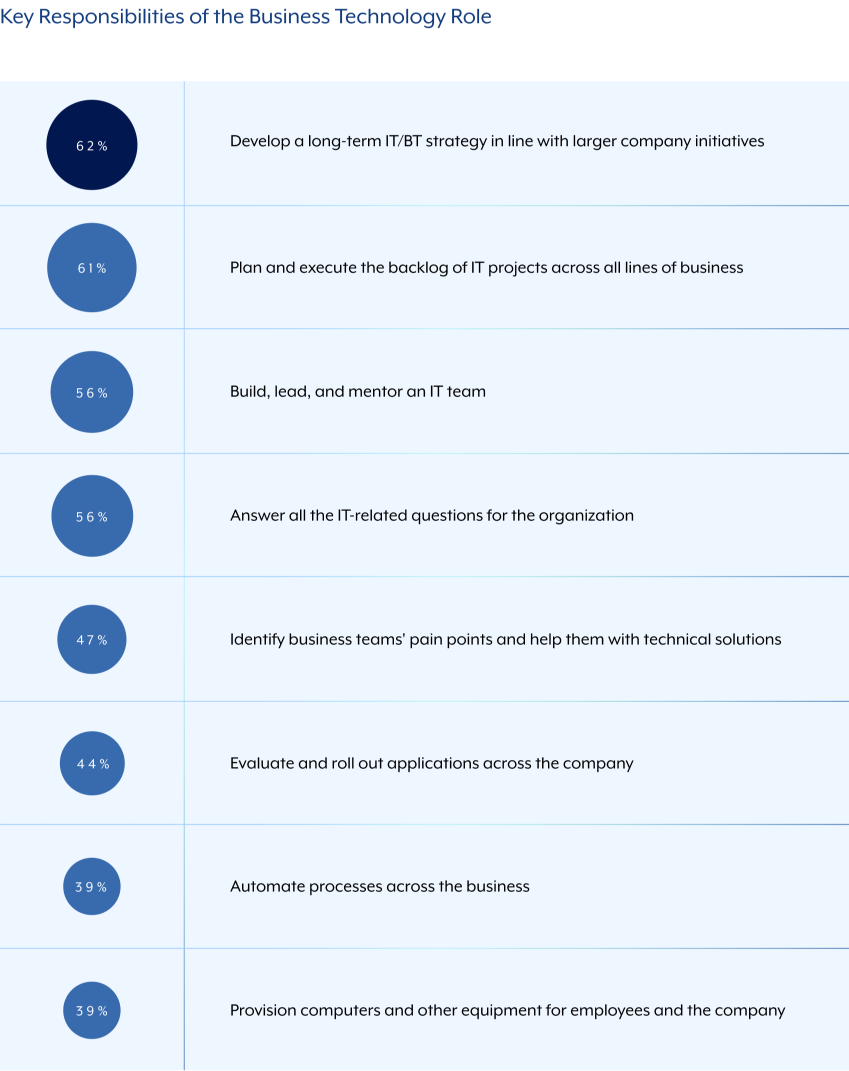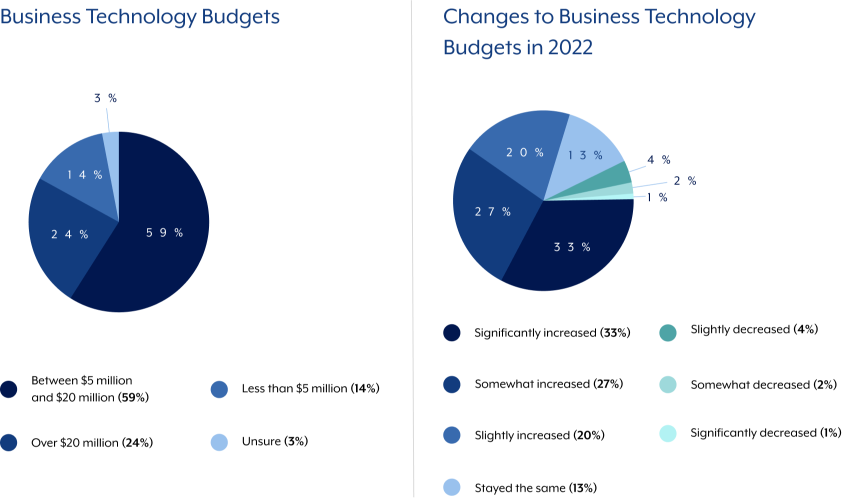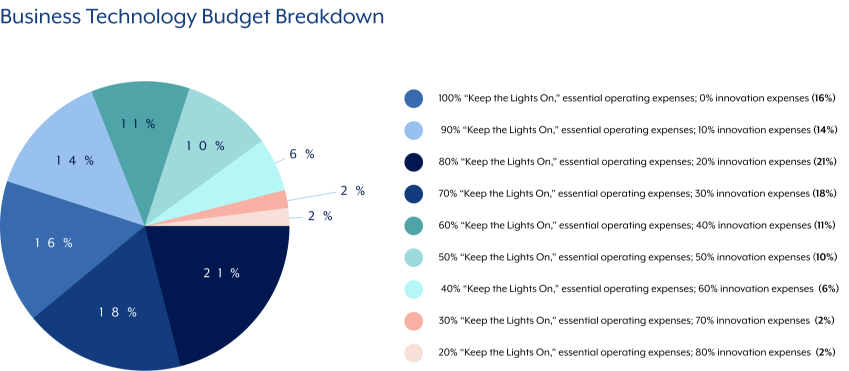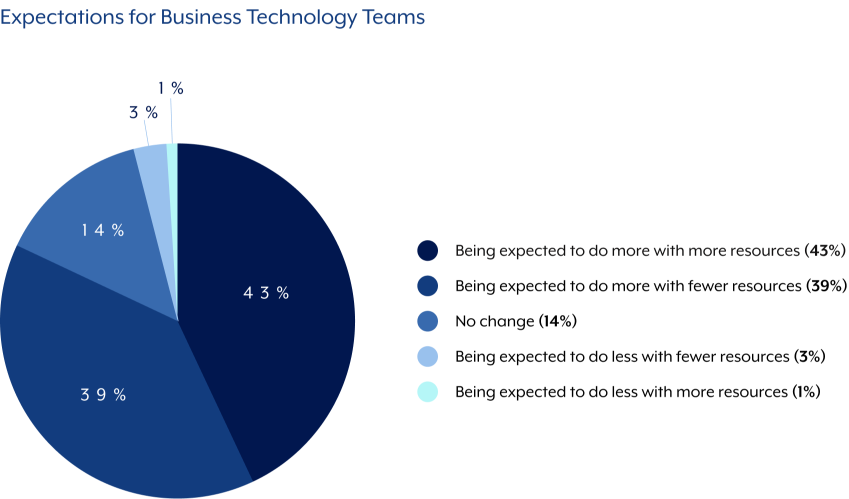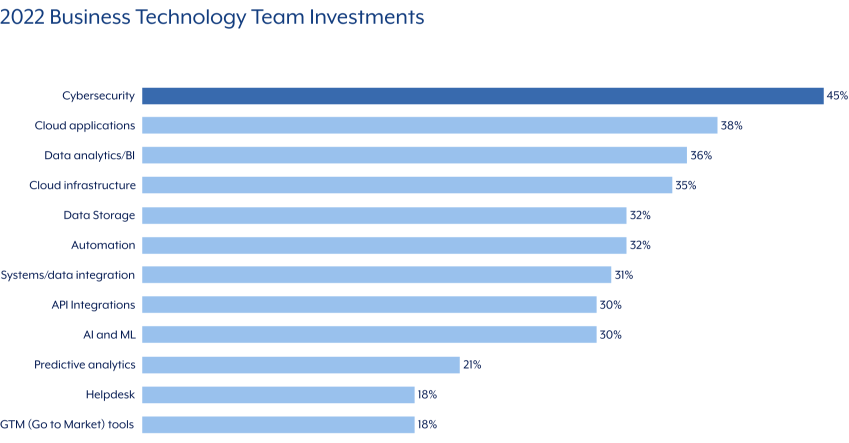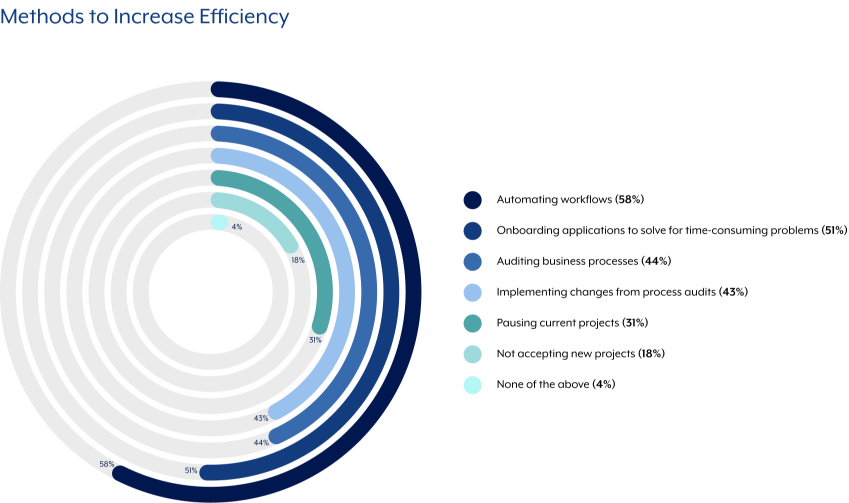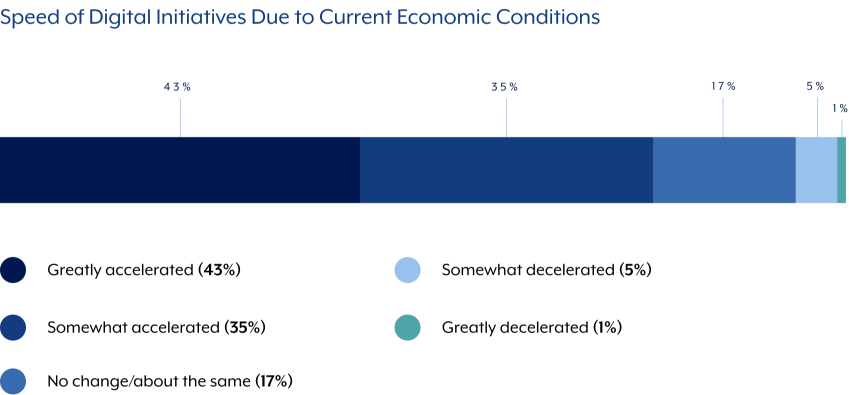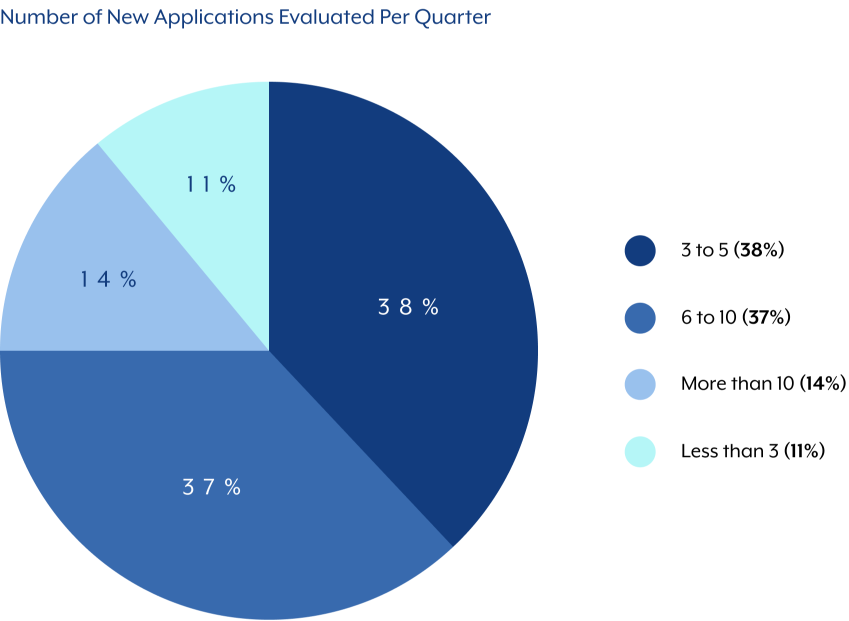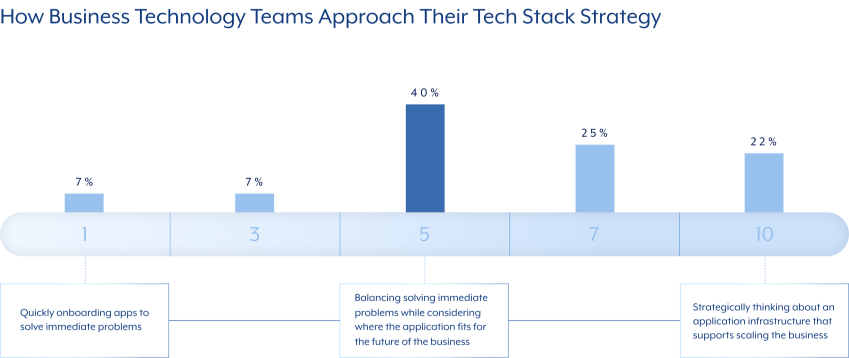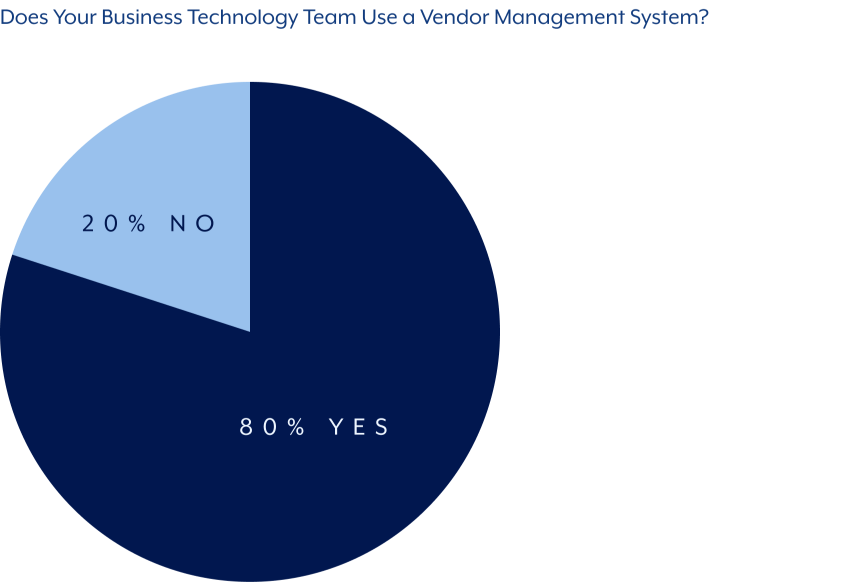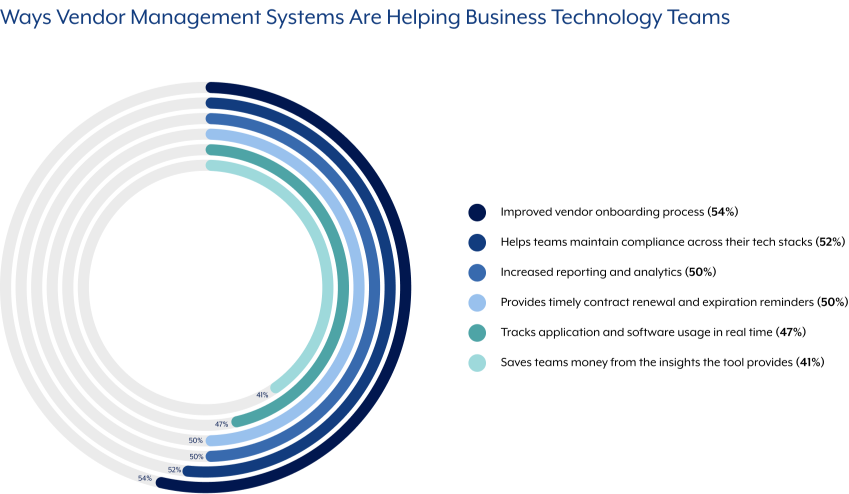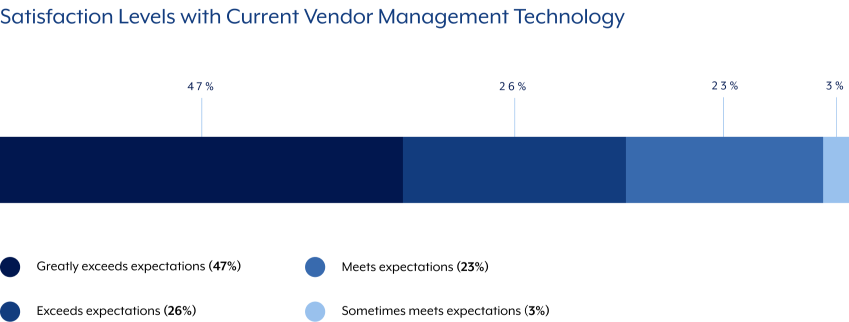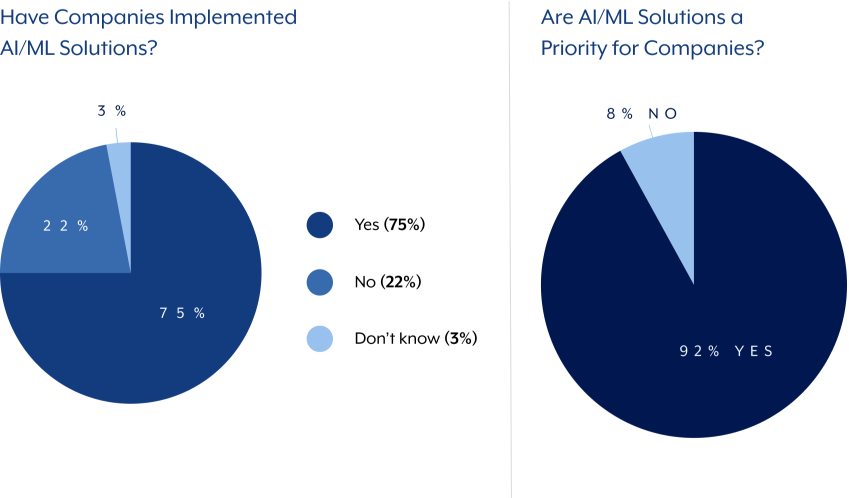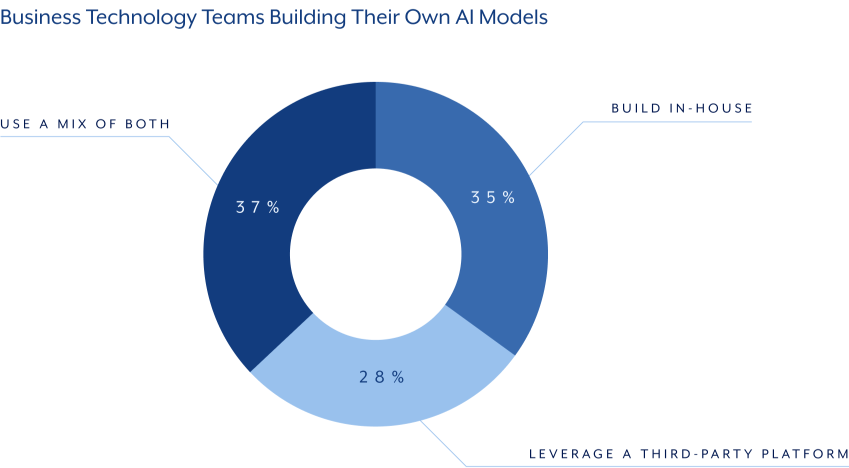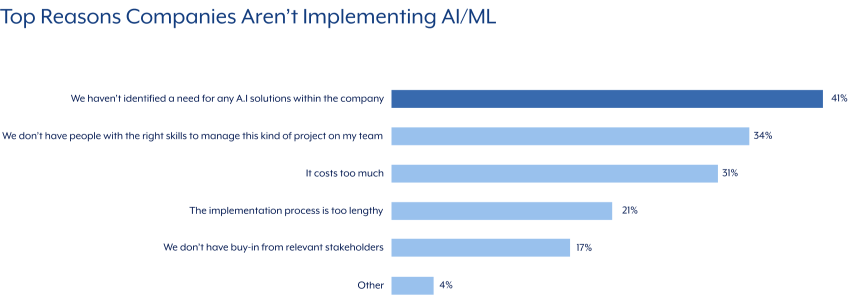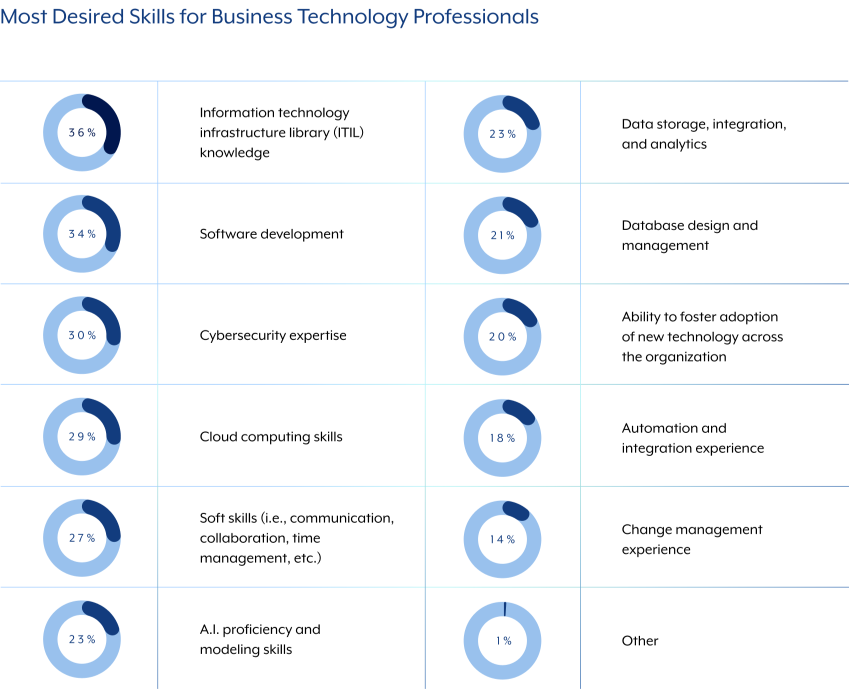Executive Summary
- BudgetBusiness Technology teams have more budget than last year, but less room for experimentation and innovation.
- Increasing EfficiencyThe majority of Business Technology leaders think automation is the answer to maximizing efficiency in an uncertain economy.
- SAAS Spend57% of Business Technology leaders are being pressured by leadership to reduce SaaS spend. BT leaders don’t agree on a singular approach to meet this pressure.
- Artificial IntelligenceAI is a priority for companies right now—92% of respondents said AI is a priority for them, and 75% have already implemented AI/ML (Machine Learning) solutions.
- HiringThe top skills leaders are looking for in Business Technology candidates are Information Technology Infrastructure Library (ITIL) knowledge (36%), software development skills (34%), and cybersecurity expertise (30%).
- InvestmentsIn 2021, Business Technology teams were concentrating on their cybersecurity programs, and this year is no different with 45% of leaders selecting this as an area where they are investing more than ever before.
A.
80% of Business Technology teams saw an increase in their budget this year, with nearly a third reporting that it "significantly increased."
B.
The portion of respondents’ budgets going towards innovative software and process improvements is down 10% from last year.
C.
82% of teams are currently expected to get more done—and nearly half of those teams are being measured against higher expectations with fewer resources than they had previously.

